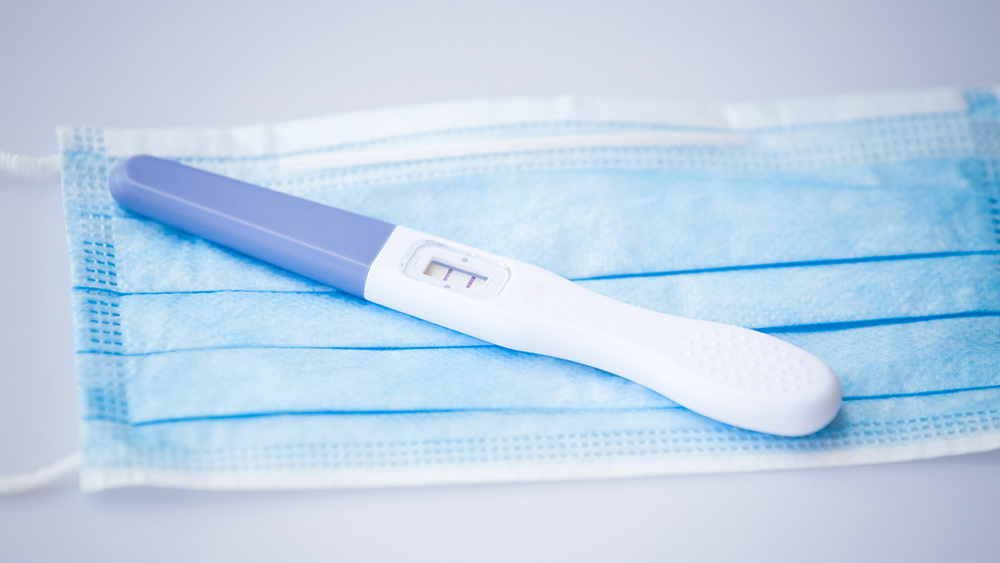5th Circuit Court of Appeals, in shutting down OSHA mandates, also challenged the validity of the pandemic and government restrictions
01/06/2022 / By Lance D Johnson

Not only did the 5th Circuit Court of Appeals shut down the OSHA workplace mandates, but the court also challenged the validity of the pandemic and all subsequent emergency orders and physical restrictions that governments have imposed under its premise.
On page 10, the court states: “The natural first step in enacting a lawful ETS (emergency temporary standard) is to show that employees covered by the ETS are in fact exposed to the dangerous substances, agents, or hazards at issue—here, COVID-19.”
OSHA cannot prove that covid-19 represents a “grave danger” to everyone in the workplace
The court affirmed the definition of emergency temporary standards, that they “are an unusual response to exceptional circumstances.” Throughout history, the courts have unilaterally ruled that OSHA’s authority under § 655(c) is an “extraordinary power” that should be “limited” and “delicately exercised.” In other words, OSHA cannot flagrantly establish emergency temporary standards, and the agency cannot be used as a political weapon to force people to give up their body autonomy for some concocted idea of “safety.”
Therefore, the 5th Circuit Court of appeals ruled that the Biden administration’s vaccine, mask and PCR testing mandate (with all its threats of coercion and extortion) are “anything but a “delicate exercise” of this “extraordinary power.”
“Quite the opposite, rather than a delicately handled scalpel, the Mandate is a one-size-fits-all sledgehammer that makes hardly any attempt to account for differences in workplaces (and workers) that have more than a little bearing on workers’ varying degrees of susceptibility to the supposedly ‘grave danger’ the Mandate purports to address,” the court ruled.

OSHA cannot prove that exposure to airborne viruses is a workplace hazard, when exposure is the key to immunity
The Department of Labor and the Occupational Safety and Health Administration (OSHA) failed to properly define “covid-19” and prove that all employees are in “grave danger” to a new causative agent. Under OSHA’s own rules (Int’l Chem. Workers, 830 F.2d at 371), the agency cannot propose a new ETS if the agency is unable to properly identify and isolate a substance of “grave danger’ at such levels that warrant hazardous exposure in the workplace.
A new OSHA ETS cannot be legally enacted unless it:
- Addresses “substances or agents determined to be toxic or physically harmful.” Airborne viruses do not fall under this definition because they are endemic, and exposure cannot be veritably traced with current diagnostic standards, especially across the entire workforce.
- Shows that workers are exposed to these “substances,” “agents” or “new hazards” in the workplace. There is no accurate method to properly trace exposures to airborne viruses.
- Proves that the exposure places workers in “grave danger.” Exposure and natural immunity to airborne viruses can be considered the opposite of a “grave danger.”
- Provides evidence that it is “necessary” to alleviate employees’ exposure to this “grave danger” in the workplace. There is no medical necessity to justify widespread interference of people’s lives, their breathing, their interaction and immune function, all to promise “workplace safety.”
Instead of providing a burden of proof that covid-19 is a “grave danger” for all workplaces with over 100 employees, the federal government provided examples of “clusters” and “outbreaks” to purport there is “evidence of workplace transmission.” However, the court reiterated that these examples “miss the mark” because “OSHA is required to make findings of exposure —or at least the presence of COVID-19—in all covered workplaces.”
OSHA relies on non-specific symptom reporting and diagnostic test results that are provably fraudulent for sequencing a specific causative agent. Restrictions are completely unnecessary in the workforce and are extraordinarily cumbersome. There are NO instances in American law where the rights of one person supersede the body autonomy rights of another. Moreover, the federal government failed to prove that exposure to covid-19 is a workplace hazard because there is mounting evidence that natural immunity improves the safety of the working environment.
Sources include:
CA5.USCourts.gov [PDF]
Tagged Under: big government, body autonomy, court precedent, COVID mandates, Department of Labor, fraudulent diagnostics, fraudulent evidence, health freedom, herd immunity, Joe Biden, Medical Tyranny, natural exposure, natural immunity, OSHA, pandemic, workplace hazards




















